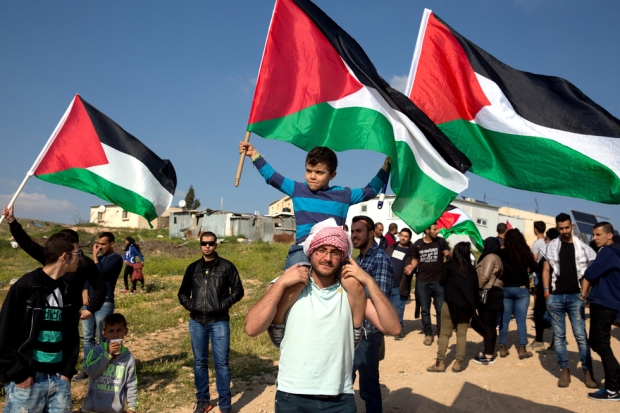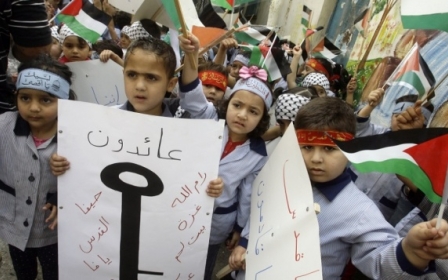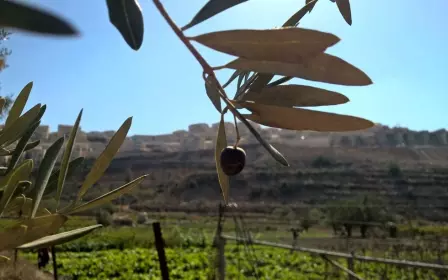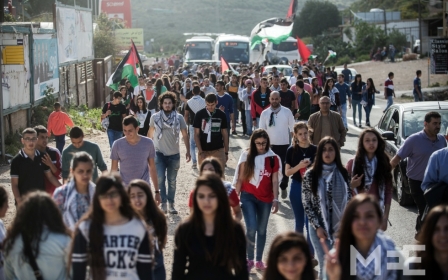An ode to Palestine on Land Day
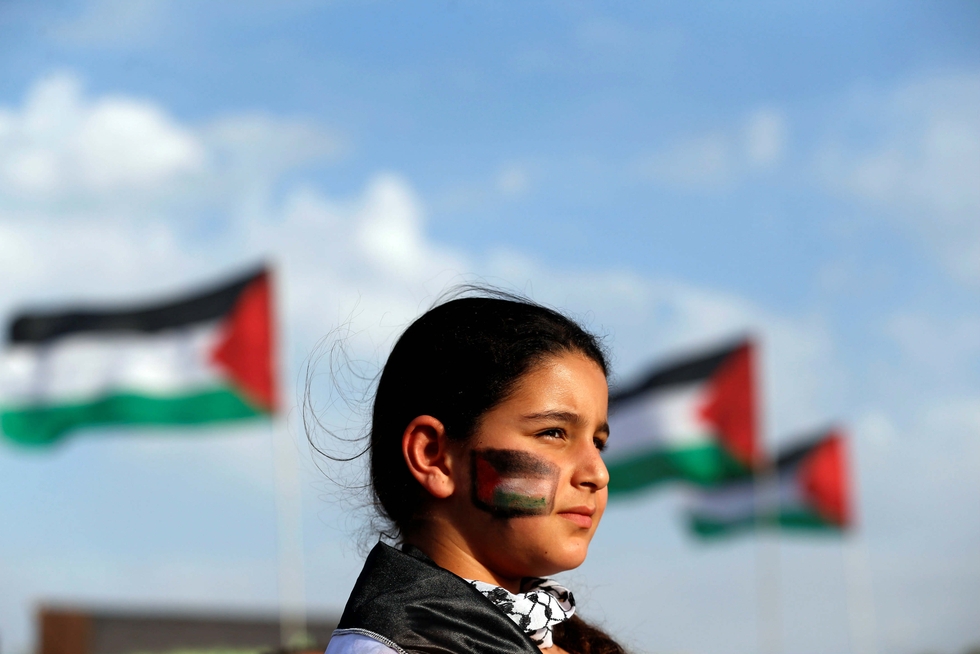
On 30 March 1976, Palestinian citizens of Israel declared - for the first time since the Israeli occupation of their land in 1948 - a general and comprehensive strike in rejection of successive Israeli discriminatory policies since 1948.
Several minor strikes took place during the 1970s by Palestinians as a pattern of increased taxes and discriminatory policies emerged. At the beginning of 1976, the Palestinian population, the indigenous people of the land, had not enough space for construction nor agriculture as a result of the systematic confiscation of their land which amounted to five million acres (203 sq km) at the time.
A cry of rejection
Simultaneously the Israeli government confiscated another 21,000 acres of agricultural land in the Galilee region. That decision sparked the onset of the general strike. The authorities decided to suppress the strike at all costs, and return the Arab masses to a state of fear.
Demonstrations were suppressed with live bullets by the Israeli occupation authorities. This resulted in tens of injuries, hundreds detained and the killing of six Palestinians: Raja Abu Ria, Khader Khalayleh, Khadija Shawahneh from Sakhnin, Rafat al-Zuhairi from Ain Shams camp, Hassan Taha from Kafr Kanna, Khair Ahmed Yassin of Araba Batuf.
Land Day is a gift to the original mother, the land that carries all meanings of life in the consciences of its children
The protesters, however, succeeded in countering the expropriation decision and preserved the land. Since that day, Palestinians have been commemorating the anniversary of Land Day, the anniversary of the martyrs and the cry of rejection to all the attempts at dissolution and domestication that the Palestinians endured since their territories were occupied in 1948.
The meaning of the land
The struggle of the Palestinian people since the peasant revolution in 1936, the longest Palestinian revolt against British rule, until today hails from an honest and intuitive realisation that the meaning of land and the relationship with it transcends the material dimension to what is deeper.
It empowers the Palestinians to continue to the end the confrontation, no matter how costly or scary it may seem to the intellectual. Land Day is a gift to the original mother, the land that carries all meaning of life in the conscience of its children.
Those who walk along that path are fathers, mothers, sons, daughters, brothers, husbands and lovers. Their immortal journey is drenched in all kinds of emotions and human stories that cannot be reduced to numbers. These are rare stories that do not resemble each other nor lose their beauty when recounted year after year.
They follow that path because they know how to protect their identity from loss and theft. Some may depart drenched in blood and in our love but they know that embarking on that path is the greatest protection of all that they love.
The big question
This miraculous nobility is the answer to the question: why and how did the Palestinians not despair or retreat despite the toughness of their path, and the multitude of its obstacles.
This is the sacrifice offered by Palestinians not only to the stones and soil of the land, but to the songs of the peasants during the harvest days, the singing of women at village weddings, the fishing trips and the humming of shepherds. While waiting for a train at the station or under the shade of a tree, the joy of parents cooing to their infants, the moments of safety and surprise that the sun provides while hiding in the Haifa Sea at the end of busy days, and for a safe prayer in Jerusalem which meets the peasants' evenings, and their laughter during summer nights.
It is the holy sacrifice for Palestine's rain, the blossoming of its flowers and the perseverance of its children in maintaining the land, one generation after the other. And so it is, our little lives have lovingly become a sacred and noble sacrifice.
The martyrs of the land were never numbers despite Israel's effort to bury many of them in numberless cemeteries with no witnesses nor history. They remain in the land's womb from where they originally emerged. The land recognises them and keeps them immortal.
The land for which they continue to sacrifice is not only dust and stones. It is the mother of all tales and the embrace of all those truthful ones who were targeted by powerful armies across history.
The children of the land recognise when rain is good for the harvest and when to worry about it, like the worry of a mother for her child. They did not despair over these last 100 years. Their knowledge about the land is the answer to "how and why?"
This knowledge is protected only by blood and age and transcends all languages. And because they are like that they knew how to remain immortal in us, and how to continue the struggle.
- Salam Abu Sharar is a Palestinian pharmacist, activist and blogger.
The views expressed in this article belong to the author and do not necessarily reflect the editorial policy of Middle East Eye.
Photo: Palestinian citizens take part in a Land Day rally in Deir Hanna, Galilee region on 30 March 2017 (Reuters)
Middle East Eye propose une couverture et une analyse indépendantes et incomparables du Moyen-Orient, de l’Afrique du Nord et d’autres régions du monde. Pour en savoir plus sur la reprise de ce contenu et les frais qui s’appliquent, veuillez remplir ce formulaire [en anglais]. Pour en savoir plus sur MEE, cliquez ici [en anglais].



